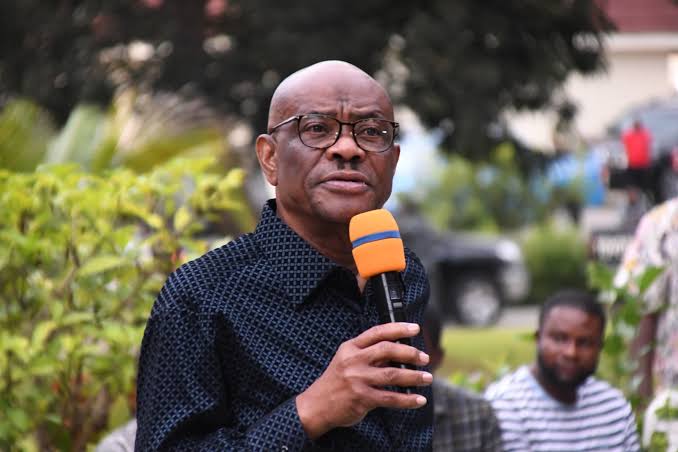
Wike Slams UniAbuja Over Undeveloped Land, promise to take over

The Federal Capital Territory (FCT) Minister, Nyesom Wike, has taken a firm stand against the University of Abuja, calling out the institution for its failure to develop a significant portion of land allocated to it.
During a recent public address, Wike expressed his frustration, describing the lack of progress as "unacceptable" and issuing a stern warning: if the university does not act swiftly, the land could be reallocated.
This development has sparked conversations across Nigeria, with many wondering whether the university will rise to the challenge or face the consequences of Wike’s threat.
Wike, who has been the FCT Minister since 2023, is known for his no-nonsense approach to governance and his focus on transforming the capital territory through infrastructure and development projects.
His latest comments came during an inspection of ongoing works in the FCT, where he also took the opportunity to commend the progress on the 15-kilometer Outer Southern Expressway, a key infrastructure project aimed at improving connectivity in the region.
Wike’s emphasis on development is not new—he has consistently pushed for efficient land use and infrastructural growth since taking office, earning him the nickname "Mr. Infrastructure" from President Bola Tinubu.
His recent critique of the University of Abuja aligns with this broader vision of ensuring that every inch of land in the FCT is put to productive use.
The University of Abuja, however, is no stranger to land-related controversies. Back in 2020, reports emerged that bandits had encroached on parts of the university’s property, turning the area into a hotspot for criminal activities.
At the time, the university’s management appealed to the federal government for assistance in reclaiming and securing the land, highlighting the growing insecurity in the region.
The banditry issue in northwest Nigeria, as documented in various sources, has been a persistent challenge, with criminal gangs exploiting ungoverned spaces to establish control.
The University of Abuja’s land, left undeveloped for years, became a prime target for such groups, further complicating the institution’s ability to utilize the space effectively.
Wike’s threat to reallocate the land has added a new layer of urgency to the situation. For the university, this could mean losing a valuable asset that was intended for expansion and development.
The minister’s remarks have also reignited discussions about land management in Nigeria, particularly in the FCT, where rapid urbanization demands efficient use of available resources.
Wike’s focus on development is evident in his recent activities, including his praise for infrastructure projects like the Outer Southern Expressway, which is expected to ease traffic congestion and boost economic activity in the region.
By contrast, the undeveloped state of the university’s land stands as a stark reminder of missed opportunities for growth and progress.
The reactions to Wike’s statement have been mixed. Some Nigerians, particularly those in the FCT, support the minister’s push for accountability, arguing that the university has had ample time to develop the land.
Others, however, feel that the institution may be facing challenges beyond its control, such as funding constraints or security issues stemming from the banditry crisis.
On social media platforms like X, users have expressed a range of opinions, with some calling for Wike to "calm down" and others urging the university to take immediate action to avoid losing the land.
As the situation unfolds, all eyes are on the University of Abuja to see how it will respond to Wike’s ultimatum.
Will the institution finally take steps to develop the land, or will Wike follow through on his threat to reallocate it?
For now, the minister’s message is clear: in the FCT, development is non-negotiable, and no institution is above accountability.
This saga serves as a broader lesson for other organizations sitting on undeveloped land in Nigeria—use it, or risk losing it.


